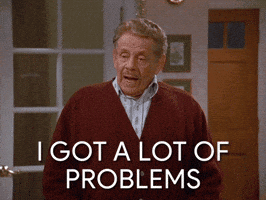Callatoroy
Inconceivable Member
- Messages
- 2,825
More hypocrisy. How many "you mad" gifs did you guys drop when obama was in office? You literally admitted yesterday that you didn't consider the names your side dropped when you called me out for doing the exact same thing. Wayne was one of the absolute worst but that was funny because libs own the board. Now you guys are in the same position conservatives were in when obama and biden won and you can't stand to receive the same type comments. Why Ford? I respect you opinion. Why is it so offensive when its done to your side but not when its the other way?Stop it. You sound absolutely ridiculous to the point of lunacy. Grow up.
Wayne's post is childish at best and utter bullshit regardless. Him calling out any voter who disagreed with him and applying all the usual names you guys so love is what you should be calling out. The intolerance of different thought is where the focus should be. But nah, that's my teammate so its all good. You are better than that. At least I thought so. I said when this board was formed that it didn't really want conservatives posting on here. But you (meaning the board) disagreed (with certain stipulations of course) because you were so sure you were going to win the election. The election has shown that what you really want is a collective echo chamber where everyone can be cathartic and soothe each others TDS symptoms, and 5 or so conservatives you can kick around like your dogs after you lost the election. I came on here to find serious posters who actually wanted to have serious discussions about politics. Really hard to do when you see bullshit like wayne posted and 100 "yea, you tell em's). And apparently hard to do when your side isn't in political control. So, why not just put people like wayne on ignore? Well, how many would be left? I'm not much of an ignore guy anyway. Seems a little snowflaky to me but to each his own.
I apologize to the board for my insensitive, non-conforming, and disrespectful comments since the election. I will try to be a good little conservative and learn my place.

